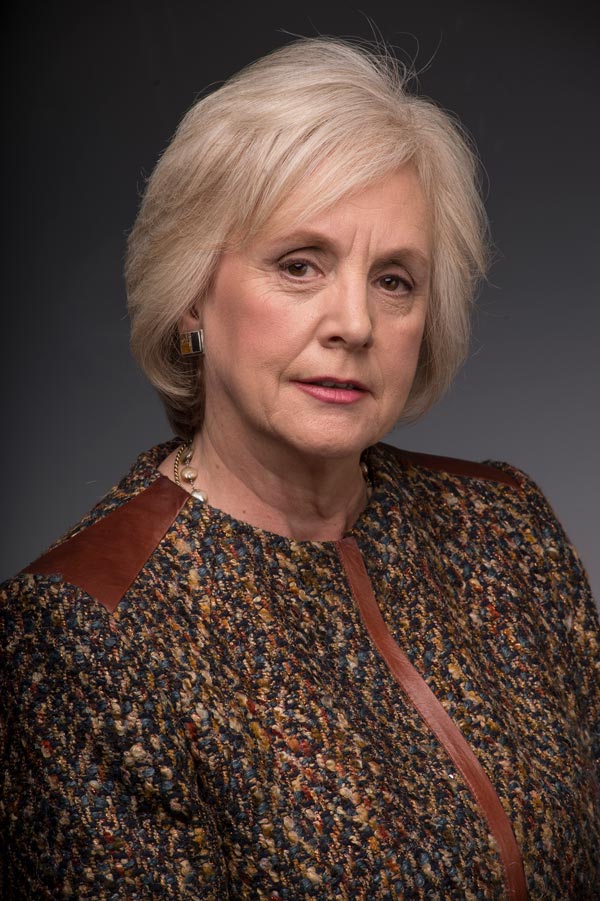
n August 2019 the Business Round Table – the preeminent association of nearly 200 CEOs of America’s leading companies – issued a paradigm shifting statement on the purpose of the corporation. Its new conceptualization of corporations’ purpose reduces the primacy of creating value only for shareholders and elevates the importance of companies’ commitment and accountability to all stakeholders – employees, customers, suppliers, the communities in which they operate and serve, and the natural environment that bestows the resources that enable our societies and economies to thrive.
I have long supported this broader definition of purpose and concur with the research that shows that broader stakeholder accountability leads to better organizational and financial performance and is therefore in the best long-term interests of shareholders. Over the past two decades this view has gained increasing support, ultimately culminating in the Business Roundtable’s reframed statement of purpose.
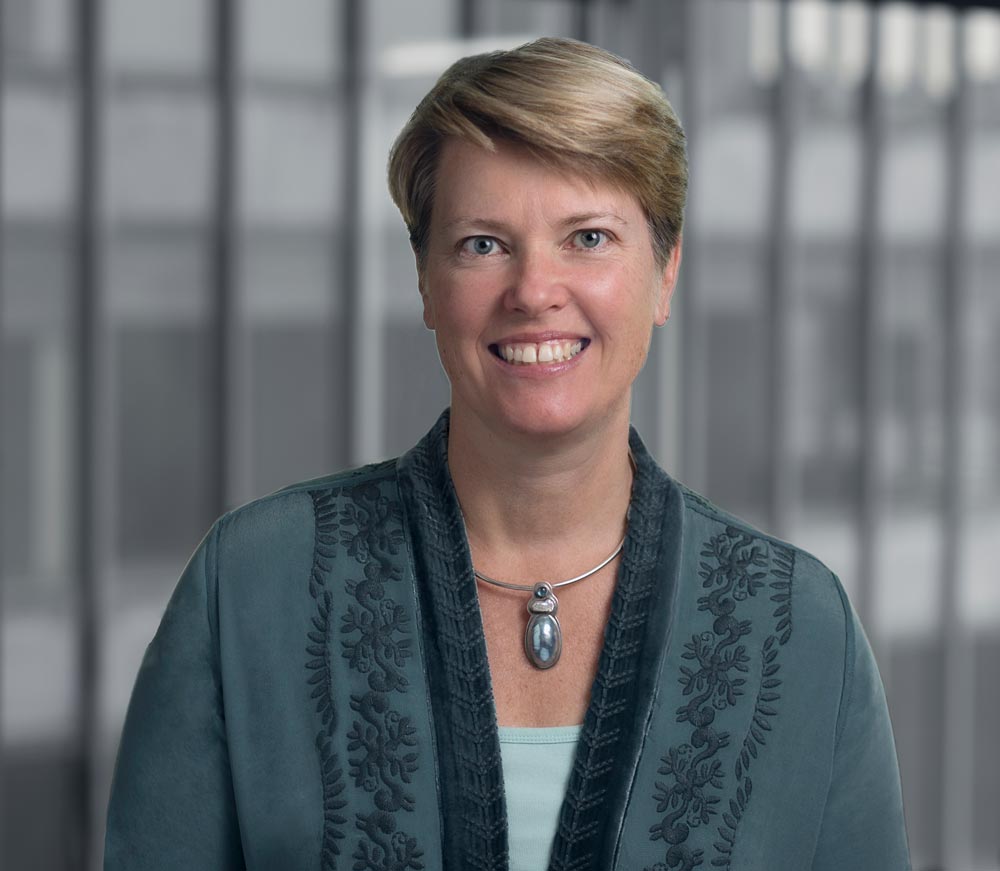
In 1992, I graduated from UNH with a degree in Hotel Administration. After a brief time in the hospitality industry I transitioned my client service skills to the John Hancock mutual fund call center in Portsmouth. The mid-90’s was a boom for mutual funds. It was a great time to enter the financial industry and a tremendous opportunity to advance my career from customer service associate to management.
When the Portsmouth office closed, I left the company. That unexpected change brought me to United Way of the Greater Seacoast (UWGS) where I managed non-profit relationships and community impact grantmaking. My time at UWGS opened my heart and mind. I knew from that point forward that anything I pursued in life needed to be mission-driven. I wanted to return to finance and decided to pursue a career in socially-responsible investing where I could leverage finance as a force for good. In 2007, Veris Wealth Partners, a leading national impact wealth management advisory firm, was created. I was invited to join and manage the Portsmouth, NH office. I have been a partner since 2015 and today am a Senior Wealth Manager and the Chief Client Service Officer.
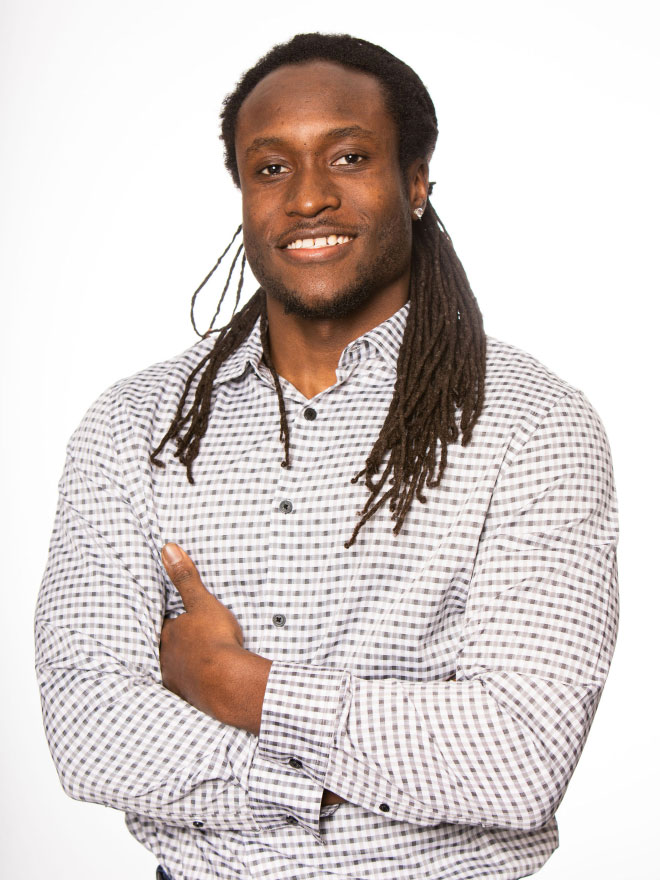
Co-founder & CEO, Shtudy
Yes, I did. I started my first business when I was 15 years old. It was a clothing line, and I had just earned my learner’s permit. I drove around all day and night delivering shirts out of the trunk of my car. I made $30,000 in one summer and instantly fell in love with business. I learned I had an innate skill. It was empowering to know that I could directly gain more wealth for my family while also doing good in the world. But it wasn’t all about the money… the feeling of providing value to someone else is what I love most.
My most notable introduction to social impact being tied to business was during the Social Venture Innovation Competition at UNH. Prior to entering the competition, I hadn’t often fathomed how a socially driven company could also be high-growth and scalable.
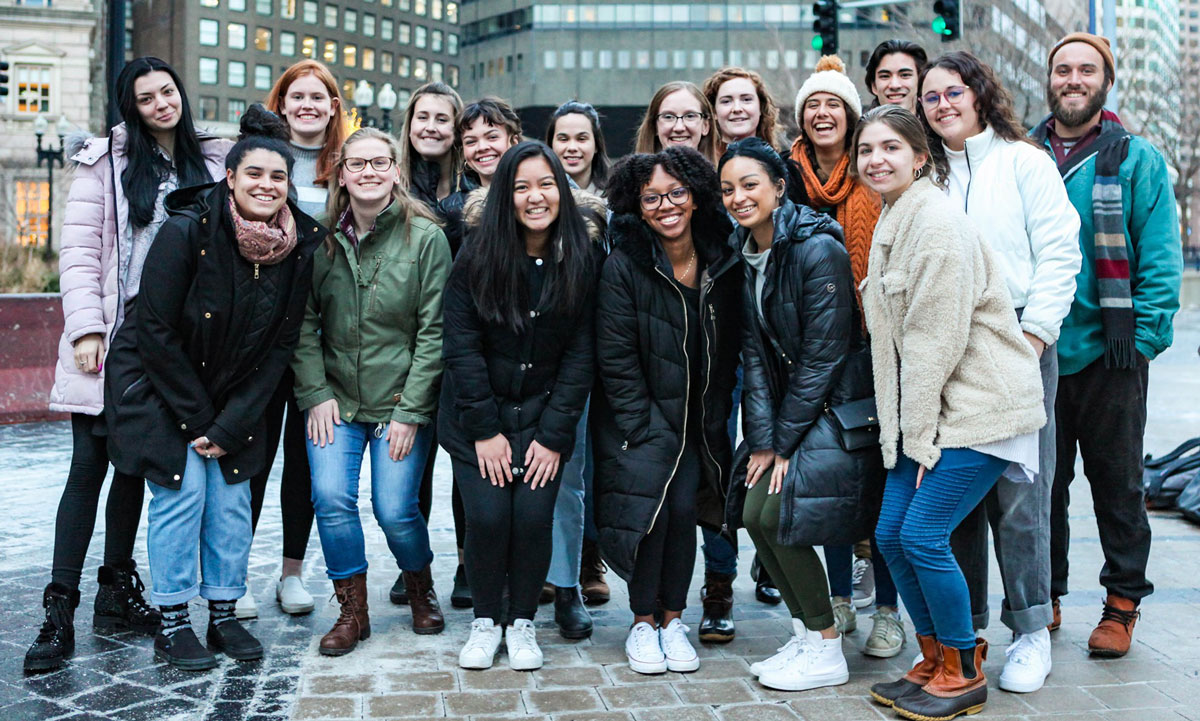
ften, those seeking broad changes in the way corporations behave toward their employees, society, and the environment, have done so as protestors. Such protests are valuable in raising attention to important issues, but what happens next to create change? At the University of New Hampshire, tomorrow’s workers are learning that “changemaking” can have a big impact when pursued within an organization. The literal “center” of this pedagogical and experiential movement is the Changemaker Collaborative, formerly known as the Center for Social Innovation and Enterprise.
Founded in 2015 as a joint venture of Paul College of Business and Economics and the Carsey School of Public Policy, the Changemaker Collaborative brings together students, faculty, staff, businesses, non-profits and government agencies committed to advancing positive change for the good of all. The Collaborative supports the next generation of skilled, courageous and confident leaders, through real-world experiences and the tools of public policy and business, while helping community partners advance their sustainability initiatives.
In June 2019, the Changemaker Collaborative brought in the UNH Sustainability Institute as a third partner and now serves more than 1,000 students and alumni a year — many from Paul College.
At the heart of the Clinic is the B Impact Assessment, an opensource tool developed by the non-profit B Lab, widely considered to be the most rigorous and comprehensive assessment of a sustainable company.
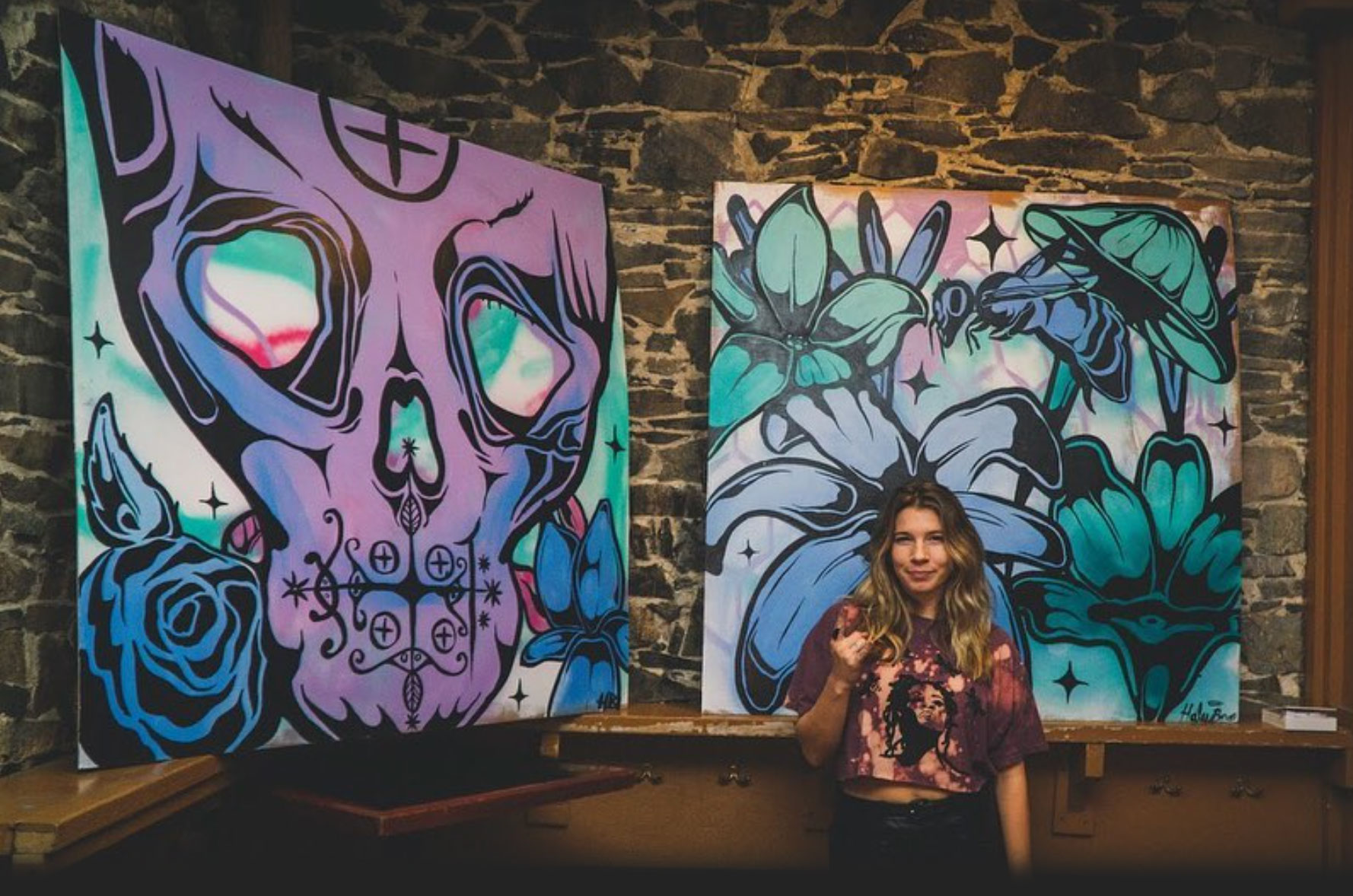
he consistent rattle of the spray paint can in her hands mimicked the ticking of her mind as Haley Burns ‘20 assessed the canvas in front of her. After hours of class, work, and event planning, she had rushed home to shrug off her suit jacket and wrap a bandana around her face. Now, squatting on the front porch of her apartment in Durham, the frustrations of the day dissipated alongside the hiss of paint clouding the air.
The art offers an escape, but it also fuels the long days, the hustle and the grit. For Burns, making art is the embodiment of her entrepreneurial spirit, and her hopes to make some small difference in the world. Business school might not seem like the natural choice for a creative type, but she couldn’t really imagine how her path could have evolved without it.
“Paul has given me an amazing foundation to feel confident in pursuing a creative career,” Burns said. “As I have grown and my interests have evolved, all of my business skills support my desire to be my own boss. My time here has made me comfortable to dream a different future for myself.”
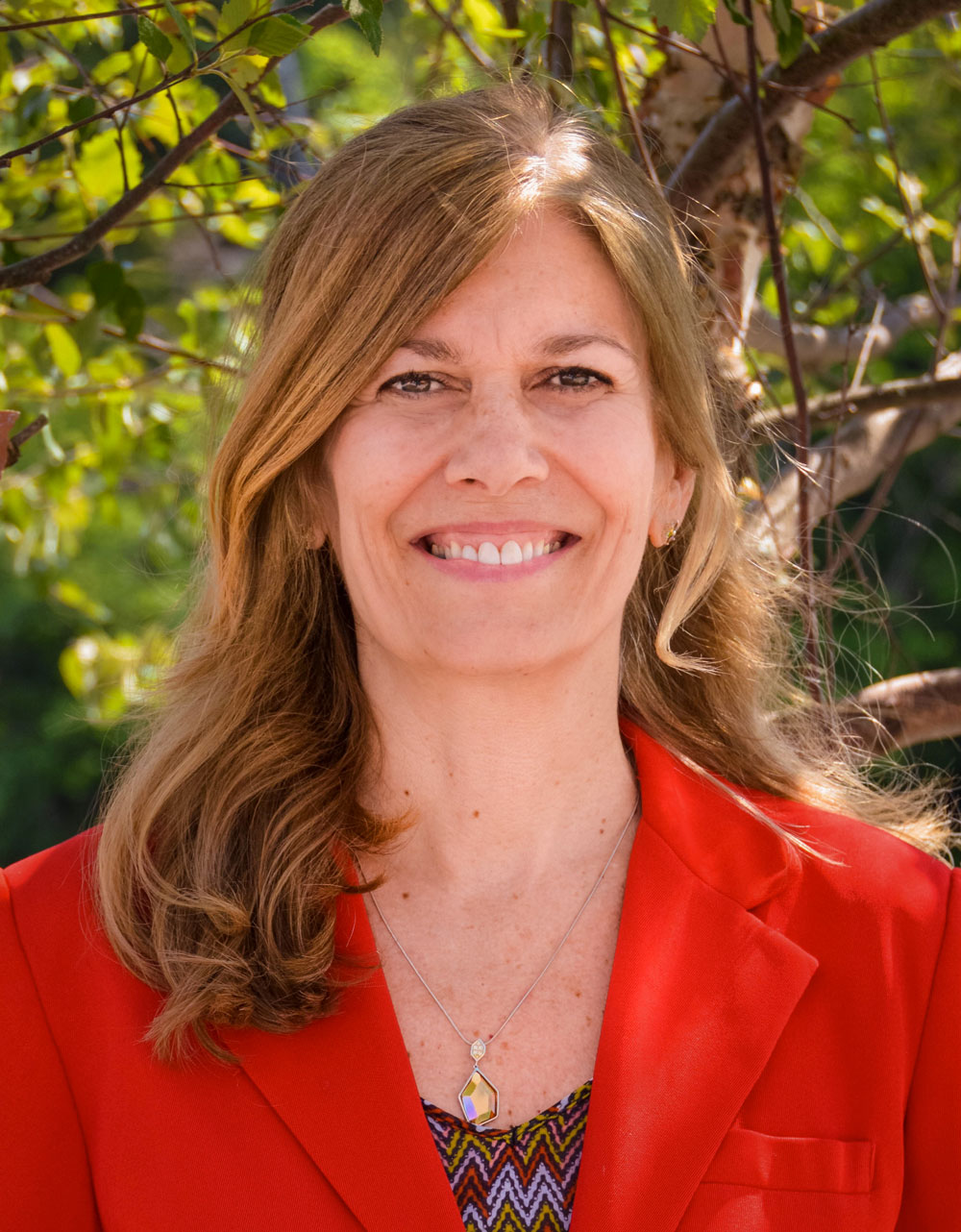
ducated as an engineer and trained as philosopher, Betty Woodman spent many years in the corporate sector where she rose to the level of senior leadership and witnessed firsthand how a company’s long-term success could hinge on the way people treated one another.
“People tend to restrict business ethics to issues of compliance and legal fair dealing,” said Woodman. “I’ve chosen to take a systems approach in which ethics serves the health and wellbeing of the whole. Harm one part, and the whole suffers, hurting the other parts as well.”
As a former sales executive, Woodman saw how corporate infighting could hurt the perpetrators as much as the victims by undermining creativity, innovation, and courage — qualities that characterize successful companies. As a doctoral student at Emory University, she drew on this experience to develop an ethical category she calls “a sustainability mindset.”
race Stott ‘20 always valued sustainability, but couldn’t figure out how to incorporate it into her college career. Then she discovered EcoGastronomy and paired it with her nutrition major.
“It was the perfect blend for my love of healthy living and sustainable food,” Stott said. “I found my true passion. Without a food system that works well, we can’t meet everyone’s basic need to eat.”
She certainly wasn’t the first to think so – 163 graduates from 31 different majors across UNH have opted to complement their fields of study with a deeper understanding of sustainable food systems in the past 10 years. By studying the convergence of agriculture, the environment, and the myriad of social, economic, political and ethical issues associated with food production and eating, many have gone on to careers that combine their values with their passions.
The seeds for the EcoGastronomy program were initially planted in May 2006 when UNH signed the Slow Food Agreements of Intentions and Collaborations “for the purpose of creating a worldwide network of universities and research institutions linked to the International Slow Food Association.” These principles include “protection of agricultural biodiversity,” “support of the rights of peoples to self-determination with regard to food,” and “education of civilized society and training of workers in the food and agricultural sector.” UNH is one of ten universities in the U.S. to have signed the principles, and the first to award the founder of Slow Food—Carlo Petrini—an honorary degree. All of this got people thinking: what if there was a degree program at UNH the reflected these values?
id you know that as of July 30, 2020 UNH was ranked sixth among universities in the country for its sustainability practices, topped only by schools like Stanford University, Colorado State, and Arizona State University? Did you know UNH also is one of only nine schools worldwide and only seven in the United States to ever earn the Advancement of Sustainability in Higher Education’s STARS Platinum rating?
Here’s something else you may not know: these days, the university’s endowment is investing more and more into sustainable investing, better known as environmental, social, and governance (ESG) investing. Paul College alums were integral to this shift, and in the proud UNH tradition of undergraduate student research, the UNH Foundation’s decision to include sustainable investing in its endowment portfolio grew, in part, out of a student’s Undergraduate Research Conference (URC) presentation in 2013.
It all began when economics and political science dual major Austin Perea ’13 did a Social Innovation Internship with Pax World Funds, now Impax Asset Management, in Portsmouth, N.H.
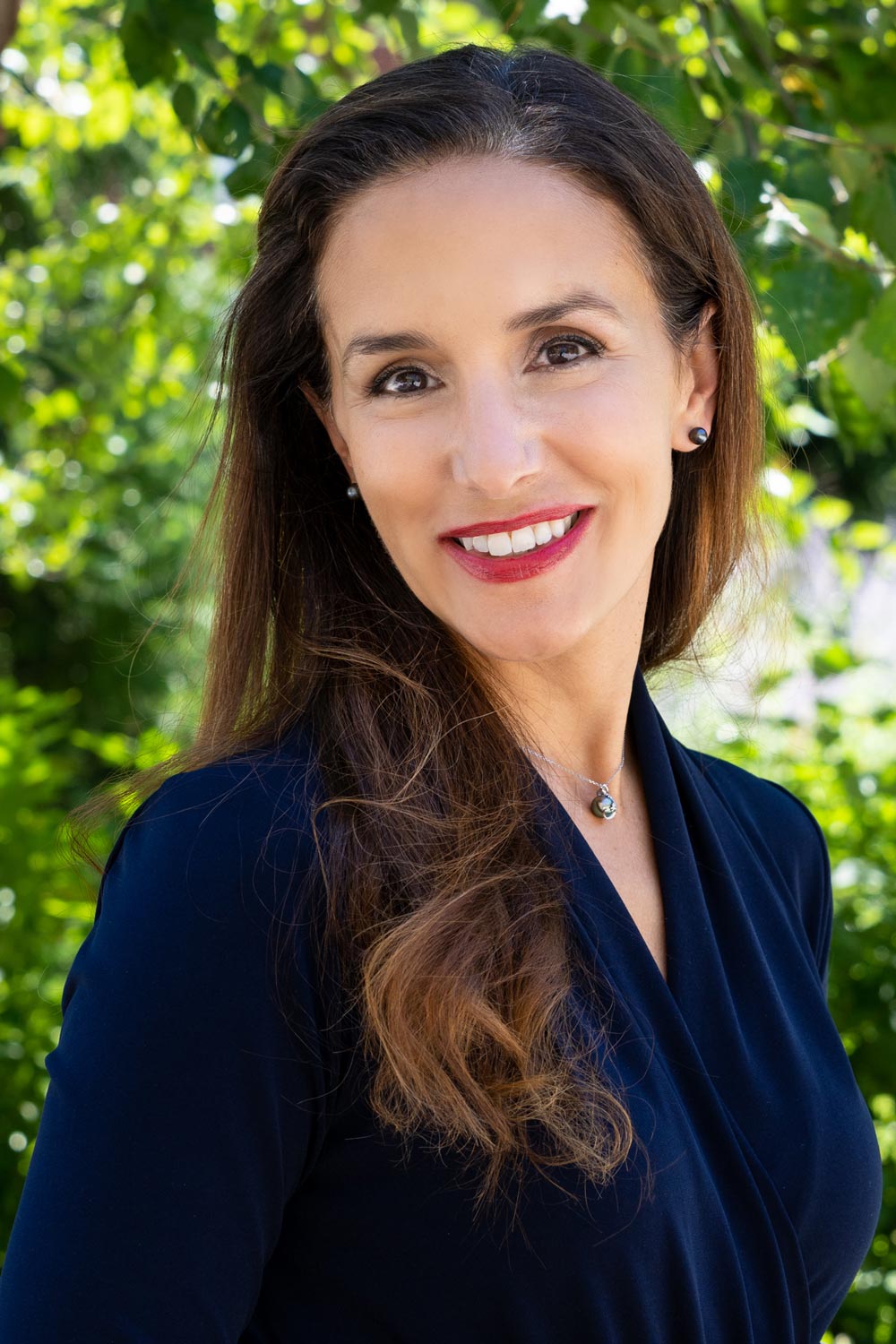
uciana (Lu) Echazú has joined the University of New Hampshire’s Peter T. Paul College of Business and Economics as its new associate dean for undergraduate education. She also is an associate professor in the Department of Economics.
Echazú was previously associate dean of undergraduate programs and operations and associate professor of economics and financial studies at Clarkson University’s David D. Reh School of Business, an R2 stem-focused private university in upstate New York.
“In addition to her broad administrative experience Professor Echazú is an outstanding teacher, a strong researcher, and a dedicated leader and contributor in service to her university,” Dean Deborah Merrill-Sands said. “We are so fortunate to have her joining our Paul community. She will contribute important areas of disciplinary expertise to the Economics Department, support Paul College in continuing to innovate experiential learning, and provide strong leadership for our undergraduate programs.”

